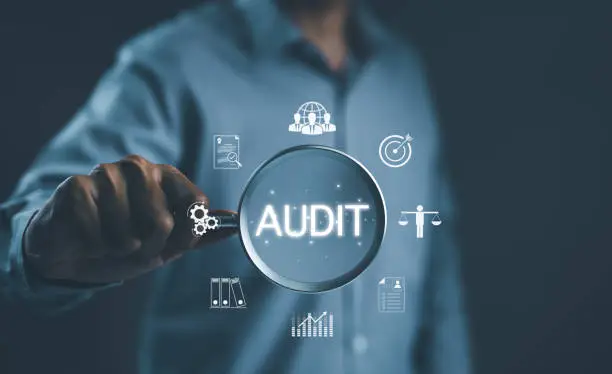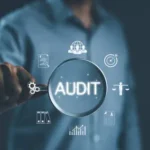Who conducts SACCO audits?

Savings and Credit Cooperative Organizations (SACCOs) are built on trust. Members contribute their money with the expectation that it will be managed responsibly, transparently, and in line with the law. Because SACCOs handle millions or even billions of shillings in member funds, there must be strong oversight to ensure that financial activities are transparent and accurate. This oversight comes primarily through regular audits.
But who exactly conducts SACCO audits? And why does it matter who performs this important role? Understanding the audit process gives members confidence in the integrity and stability of their SACCO.
A SACCO audit is a detailed examination of the cooperative’s financial records, internal controls, operations, and compliance with regulations. The main purpose is to verify:
- That members’ funds are safe.
- That financial statements reflect the true state of the SACCO.
- That management follows accounting standards, cooperative laws, and internal policies.
- That any financial issues or risks are identified early.
These findings are compiled in an audit report, which is presented to members during the Annual General Meeting (AGM).
Who Conducts SACCO Audits?
- Licensed External Auditors
The majority of SACCO audits are conducted by independent external auditors who are registered and approved by the Sacco Societies Regulatory Authority (SASRA) and the Institute of Certified Public Accountants of Kenya (ICPAK).
These auditors:
- Are professional Certified Public Accountants (CPAs).
- Work independently from SACCO management.
- Follow strict auditing standards.
- Provide unbiased, professional opinions on the SACCO’s financial status.
A SACCO must hire an external auditor annually, and their appointment must be approved by members during the AGM.
- SASRA (Sacco Societies Regulatory Authority)
SASRA regulates deposit-taking SACCOs. Although SASRA does not conduct the day-to-day audit, it:
- Sets auditing standards and compliance guidelines.
- Receives audited financial statements every year for review.
- May conduct investigations or special audits if fraud or mismanagement is suspected.
SASRA ensures the audit process is credible and that the SACCO remains compliant with national regulations.
- The Office of the Auditor-General (For Public SACCOs)
SACCOs that receive public funds or are registered under government ministries—such as teachers’ SACCOs, county staff SACCOs, or SACCOs funded by state grants—may be audited by the Auditor-General.
This ensures transparency, especially where taxpayer money is involved.
- Internal Auditors (Within the SACCO)
Many large SACCOs employ internal auditors. These professionals work from within the organization to:
- Monitor daily financial operations.
- Review internal controls.
- Flag suspicious transactions or procedural weaknesses.
- Prepare internal audit reports for management and the board.
However, internal auditors do not replace external auditors. Their role is continuous, while external audits are periodic and independent.

Why the Independence of Auditors Matters
The independence of the auditor is crucial because it prevents bias. If an audit is done by someone who may be influenced by management, there is a risk of:
- Covering up financial misuse.
- Misreporting member contributions.
- Understating losses or overstating profits.
External auditors are therefore required to be independent and must not have any financial ties to the SACCO they are auditing.
Members’ Role in Selecting Auditors
SACCO members have the final say. During the AGM:
- The auditor is appointed through a member vote.
- Members can reject an auditor they do not trust.
- Members can request a change if the auditor’s work appears inadequate.
This ensures accountability and transparency from both the SACCO and the audit firm.
What Happens After the Audit?
After completing the audit, the auditor issues a report. The report may:
- Confirm that the SACCO’s finances are in good order (clean opinion).
- Highlight issues that need correction (qualified opinion).
- Warn of serious problems or irregularities (adverse opinion or disclaimer).
Members should carefully review this report, ask questions during the AGM, and demand action where needed.









